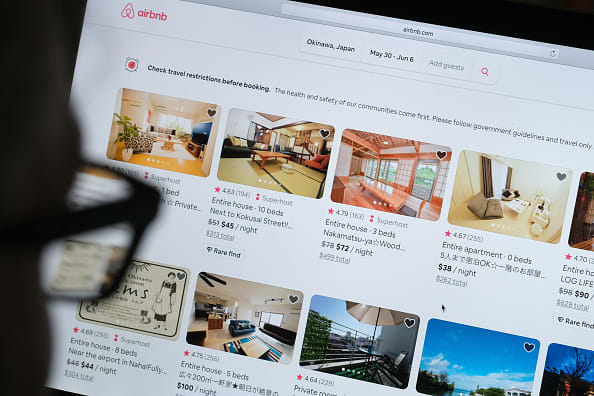LONDON — Airbnb could be among the targeted platforms when the European Union presents a raft of tougher regulations targeting tech companies next month.
The European Commission, the executive arm of the EU, is due to propose a Digital Services Act package in early December. The wide-ranging regulation, which has undergone several tweaks and name changes in recent weeks, will look to ensure that smaller companies are not prevented from entering and being part of the European market at a time when concerns grow over whether certain multinationals have become too dominant.
One of the big uncertainties around the new rules is how the Commission will define “gatekeepers” as it looks to better understand which platforms will be subject to further regulation. At the moment, the concept is quite broad and represents “very large online platforms (which) account for a very large share of the digital economy in the EU.”
The rules could mean these firms are forced to share their customer data with smaller rivals and stop them promoting their own products over the competition.
On Sunday, the FT reported, citing two people with direct knowledge of the discussions, that Airbnb’s inclusion on the list was a “real possibility.”
Dutch request
Meanwhile, the Dutch government has recently voiced its concerns about how rental firms impact house prices and social cohesion, suggesting these issues should also be taken into consideration in the upcoming rules.
The country’s deputy prime minister has suggested that it’s worth looking at Airbnb if the regulation is expanded to tackle these issues.
“To tackle the side effects of ‘short-term holiday rentals’ on European cities and enforce legislation, we need better access to data from platforms such as Airbnb,” Kajsa Ollongren said Monday.
In a document seen by CNBC, the Dutch government argued that short-term holiday rentals have “negative effects,” including on the housing market, liveability, social cohesion, safety and the level playing field for other providers of such accommodation.
As such, lawmakers believe that having access to data from Airbnb and other platforms would enable governments to better respond to these challenges. Airbnb declined to comment when contacted by CNBC.
A spokesperson for the European Commission told CNBC via email: “The Commission does not make legislation to target individual companies.”
Airbnb has experienced solid growth across the European Union. Data from Statista showed that the share of people in the Netherlands using the rental website grew from 1.6% in 2014 to 7.2% in 2018. The rental company is reportedly due to make its initial public offering (IPO) registration public in the coming days. The IPO will give more detail on the business for the first time.
European competition chief Margrethe Vestager explained last month how far-reaching the Digital Services Act package will be. She said that platforms will “have to tell us how they decide what information and products to recommend to us, and which ones to hide,” for example.
She also said “they’ll have to tell us who’s paying for the ads that we see, and why we’ve been targeted by a certain ad.” This would be massive for tech firms, which have refused to disclose their algorithms for years.
Clarification: The text in this story has been updated to better reflect the EU’s wide-ranging new directives and how they relate to each other.



